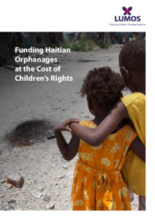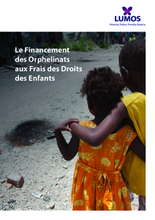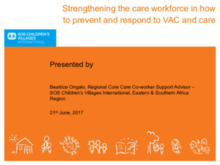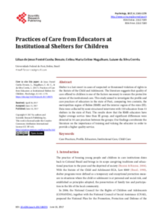Displaying 871 - 880 of 1510
The present study investigates the relationships among children's history of maltreatment, attachment patterns, and behavior problems in Japanese institutionalized children.
This article focuses on the assessment of the effects of early institutional care and compares three longitudinal studies from Romania, Greece and Hong Kong/China.
In this report, Lumos investigates the funding patterns of Haitian orphanages as well as the ramifications of orphanage life for the children raised within them to better understand why orphanages continue to flourish in the country.
Pour comprendre la raison pour laquelle les orphelinats continuent de se développer en Haïti et la façon dont ils affectent les enfants, Lumos a mené une enquête sur les modes de financement et les ramifications de la vie en orphelinat sur les enfants élevés entre leurs murs.
This presentation provides an overview of child protection issues and care reform in Ghana.
This presentation describes the issue of violence against children in alternative care settings in East and Southern Africa and offers recommendations on how to strengthen the care workforce to ensure it is equipped to prevent and respond to violence against children in alternative care.
This presentation provides an overview of violence against children in residential care facilities in Africa.
This study aimed to investigate the profile and care practices of educators teaching at institutional shelters for children in the state of Pará, comparing two contexts, the metropolitan region of Belém (RMB) and the interior region of the state (IE).
The aim of this study was to compare outcomes for children living in three different types of care in Chile: biological parental care, residential care, and foster care.
This study compares the level of social competence and quality of life among orphans and non-orphans.







